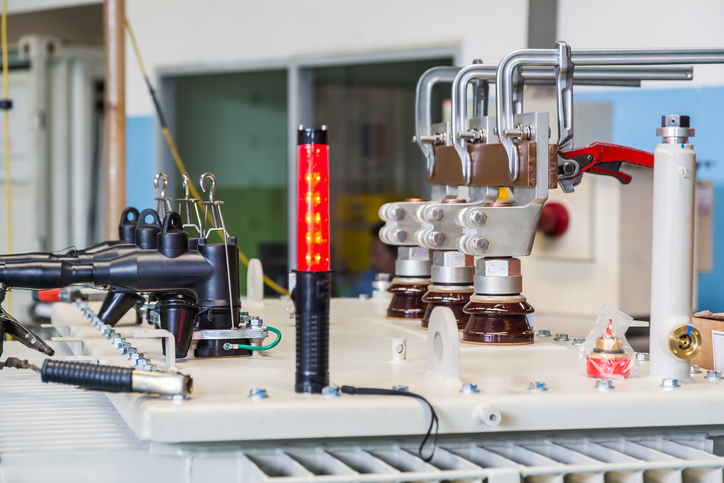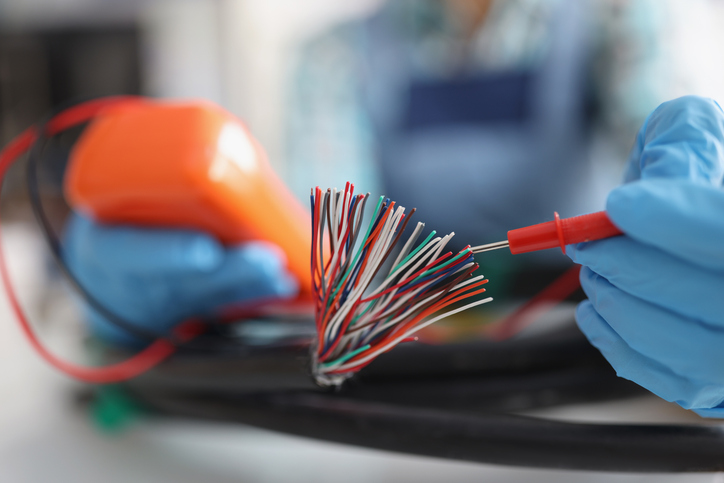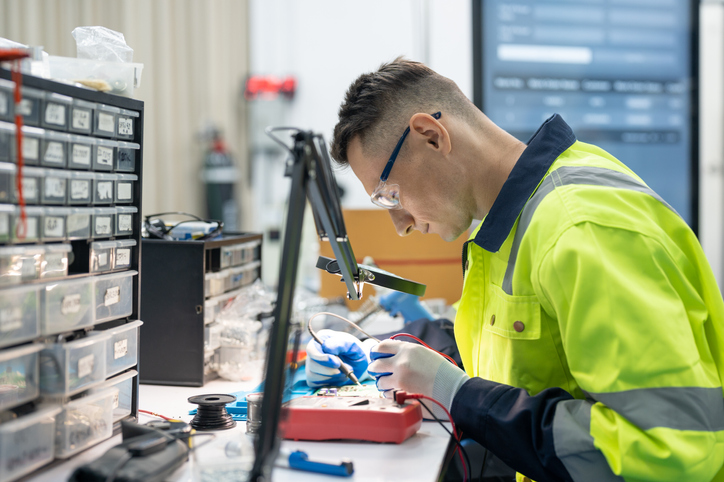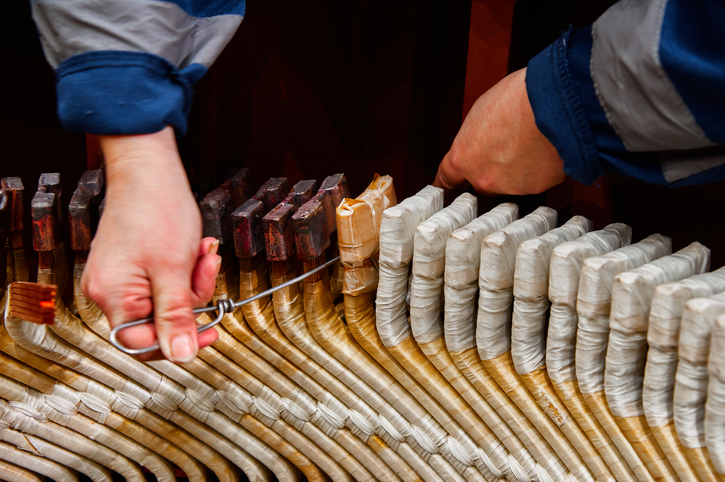Insulation is essential to ensure that power generators, motors, and medium and high voltage coils and bars of all types provide long-term service under various operating conditions. Given that the price of failure in such applications is steep, analytically testing insulation materials should be top of mind for those working in the industry.
When reliability is critical, knowledge and validation hold even more power. Every manufacturing system consists of different methods, materials, operators, and equipment. How these system components work together can make a huge difference in the quality of coils, motors, and generators a company produces. Learning which electrical insulation materials work best in your process will reduce instances of failure and extend the life of your finished products.
But accessing this kind of information, including qualifying tests on proposed materials and the analysis of failures, requires a testing partner with highly specialized equipment and experienced engineers to conduct extensive analytical medium and high voltage testing. If a coil experiences a failure, do you have an analytical lab you can go to for dissection to find the specific reason? Are your resins failing to cure properly? The right testing partner can tell you why. Are you conducting the necessary tests on your ground wall to see if the resin is penetrating properly?
For more than 60 years, Electrolock Inc. has been engineering solutions for the medium and high voltage electrical, battery, and thermal insulation industries. With decades of experience and using leading-edge technology, Electolock can identify, examine, evaluate, and compare your insulation materials. Performing tests on the chemical, electrical, mechanical, and thermal properties of these materials finds the right fit for your specific application.
Whether you’re using vacuum pressure impregnation (VPI), resin-rich technology, or a vacuum and pressure autoclave system, testing insulation materials enables the design and construction of the best insulation system for your application.
Explore Our Battery Solutions: Electrolock covers every aspect of battery insulation, from dielectric barriers to thermal runaway protection. See more here.
Essential Analytical Testing for Insulation Materials
Given the investment level and critical nature of medium and high voltage coils, it’s of absolute importance that manufacturers gain insight into every facet of the production. Given the cost of failure — in time lost for repair or to replace, and the expense — it makes sense to address every aspect of the insulation system with thorough and expert testing of the insulation materials to be used.
Seeking analytic laboratory testing is important to validate the processes and materials in place. There is too much invested in the overall machinery to not do everything possible to ensure its success. Failure for such devices can result from the smallest component breaking down, the improper adhesive being used, or the resin not curing properly.
When searching for the right partner to execute the precise testing of insulation materials, it’s important to consider their complete portfolio. Do they have extensive experience in the field? Do they have access to the needed equipment to execute the tests required? Can they perform the tests necessary to identify, evaluate and compare your insulation materials?
Here’s a quick look at some of the many tests and top-level equipment utilized by Electrolock to analyze every aspect of the insulation system used by medium and high voltage coils.
Differential Scanning Calorimeter (DSC)
A DSC, and the tests conducted with it, are fundamental tools in thermal analysis. These measure the exothermic and endothermic energy properties of a sample during a temperature ramp-up. In other words, using a DSC allows analysis of the temperature and heat flow associated with material transitions as a function of time and temperature.
This is critical for testing resins and epoxies, specifically their curing characteristics. It allows engineers to characterize the degree of cure in a thermoset, and to determine the kinetics of the cure.
Dynamic Mechanical Analyzer (DMA)
While a DSC measures how a material handles heat flow under a temperature ramp up, a DMA test will gauge the mechanical strength of a sample under similar conditions. Both DSC and DMA will be used to determine different characteristics of a material — such as a resin or epoxy — and if it is suitable for use in the application.
DMA is a testing technique (and analytical instrument) that measures the physical properties of both solids and polymer melts, reports on modulus and damping, and is programmable to measure the force, stress, or strain the material can handle. A resin may be suitable for use based on DSC results, but could show a lack of durability under DMA procedures; this could either mark the material as the cause of a failure or exclude it from being used as part of a new insulation system.
Thermogravimetric Analysis (TGA)
Similar to DSC and DMA testing, TGA also examines a material sample before and after a temperature ramp-up process. It’s used to determine a material’s thermal stability and its fraction of volatile components by measuring the weight change that occurs as the sample is heated at a constant rate.
TGA is helpful in learning how long a given material could be expected to last in a given application. For example, let’s say a sample saw a 10% percent weight loss in a test under 300ºC. Using that data, you could extrapolate how long the material would last before it lost too much of its weight to remain effective against the specifics of the proposed application.
TGA, like DSC or DMA, is another tool that can detect the properties of elements involved in medium and high voltage coils — like resins, epoxies, and other insulating materials — and examine whether they’re a good fit or a cause of failure.
Fourier Transform Infrared Spectroscopy (FTIR)
This instrument and technique are used to identify functional groups and chemical bonds in a sample by producing an infrared absorption spectrum. The resulting profile of the sample is a molecular fingerprint that can be used to screen and scan other samples for many different components.
Using FTIR, lab technicians can determine what kind of monomer or solvent is present in a given resin. They can identify which epoxies might be present in a sample. If you have an unknown substance, FTIR testing can be performed to find out what it is, or even ‘reverse’ engineer a proven material without knowing its specific origin or makeup.
Tan Delta (ITTD) Testing
ITTD testing measures the dissipation factor — sometimes referred to as tan delta or tangent of the loss angle — and in general terms measures the quality of the insulation system in place.
As the resin in the insulation cures, the electrical insulation properties improve. One would want to be sure that when the cure cycle is completed the dissipation factor as a measure of the insulation integrity is in an acceptable range.
Other Equipment
Beyond the techniques and devices already mentioned, a highly qualified and equipped analytical lab testing insulation materials has access to a host of other equipment. Here’s a snapshot of the other equipment found in the Electrolock analytical testing lab.
- Gurley Densometer — Measures porosity or air resistance of sheet-like materials
- Contact Angle Meter — Allows direct measurements of surface tension and interfacial tension
- Electron Microscope — Essential tool for quality control and failure analysis
- MTS Tensile — Provides tensile testing with strain measurement techniques
- pH Meter — Measures the hydrogen ion concentration in a liquid solution
- Gurley Bending Resistance Tester — Measures the force required to bend a wide variety of materials under controlled and repeatable conditions
- Muffle Furnace — A type of laboratory furnace that isolates samples and is ideal for materials testing and quality control
Tailored Solutions for Stator Coils and More: Electrolock offers an extensive list of solutions for applications relating to VPI stator coils and bars and resin-rich stator coils.
Trust Electrolock for all Your Analytical Testing
Electrolock has been engineering solutions for the high-voltage electrical, battery, and thermal insulation industries since 1957. Our focus has always and will continue to be focused on creating unique and tailored solutions to service the most demanding requests. From insulating motor and generator coils to wire and cable tapes, we have the distributor relationships and engineering experience to find the right application solution for you.
From top-end, specialized lab equipment to the expertise-laden technicians and engineers conducting testing of insulation materials, Electrolock has the facilities and personnel required to find answers, validate selections, and create bespoke solutions.




